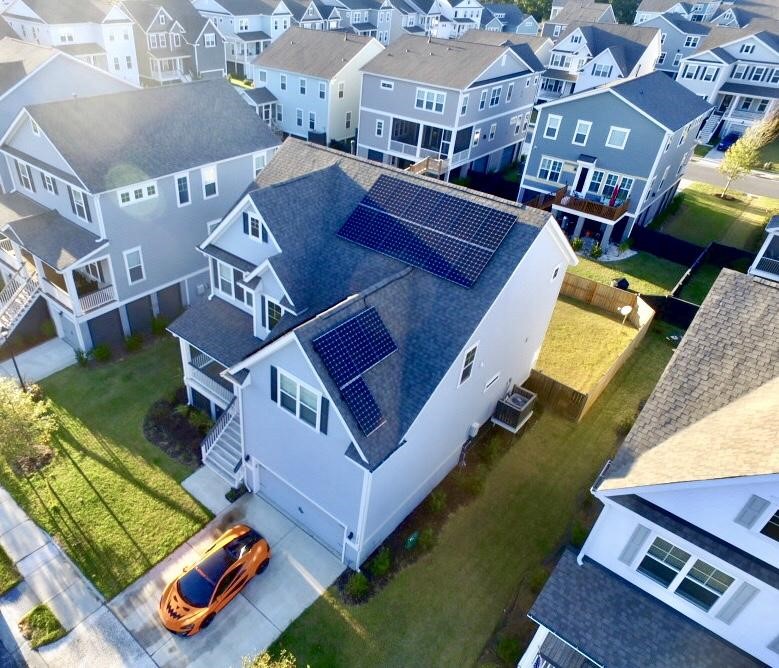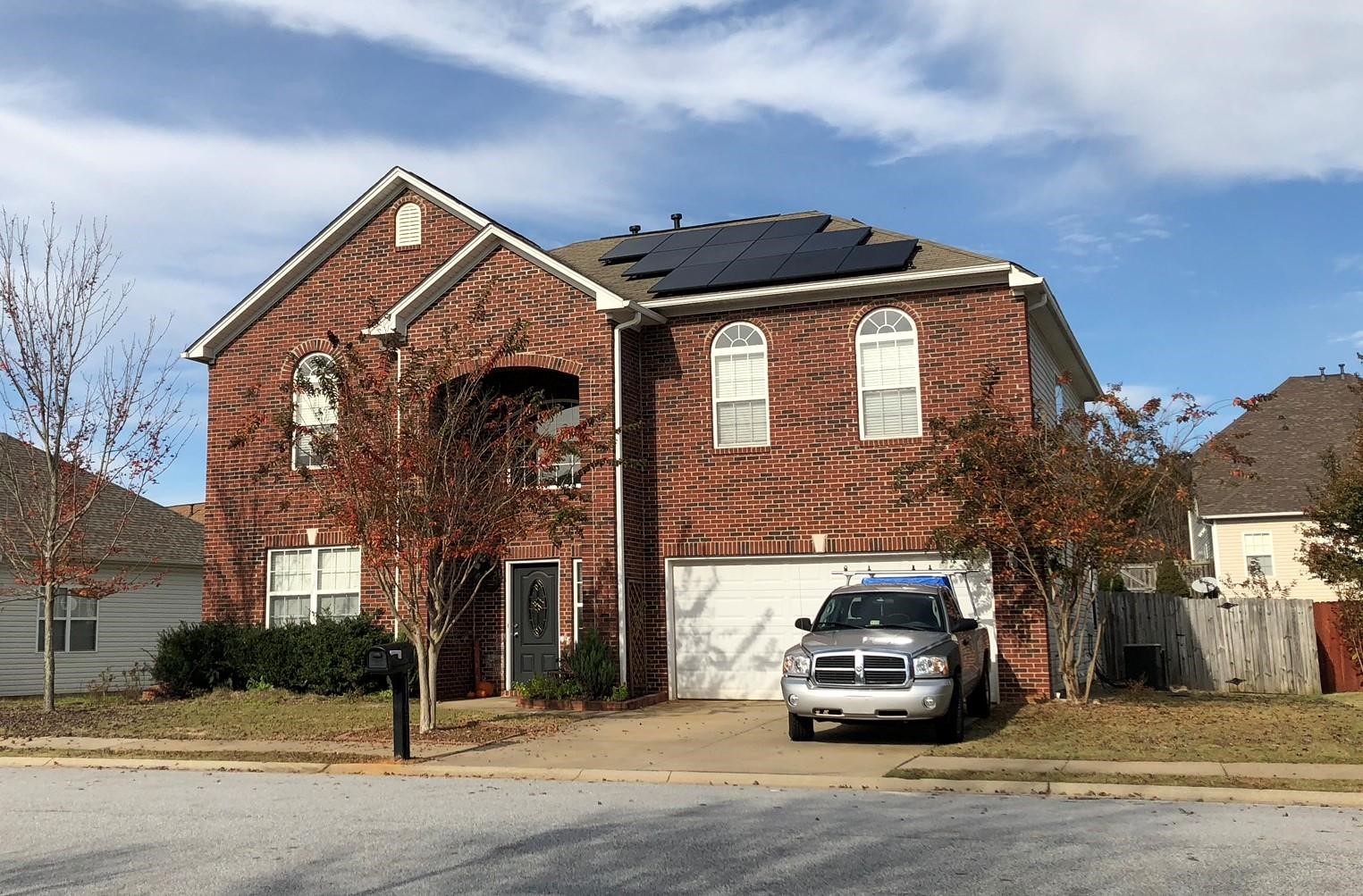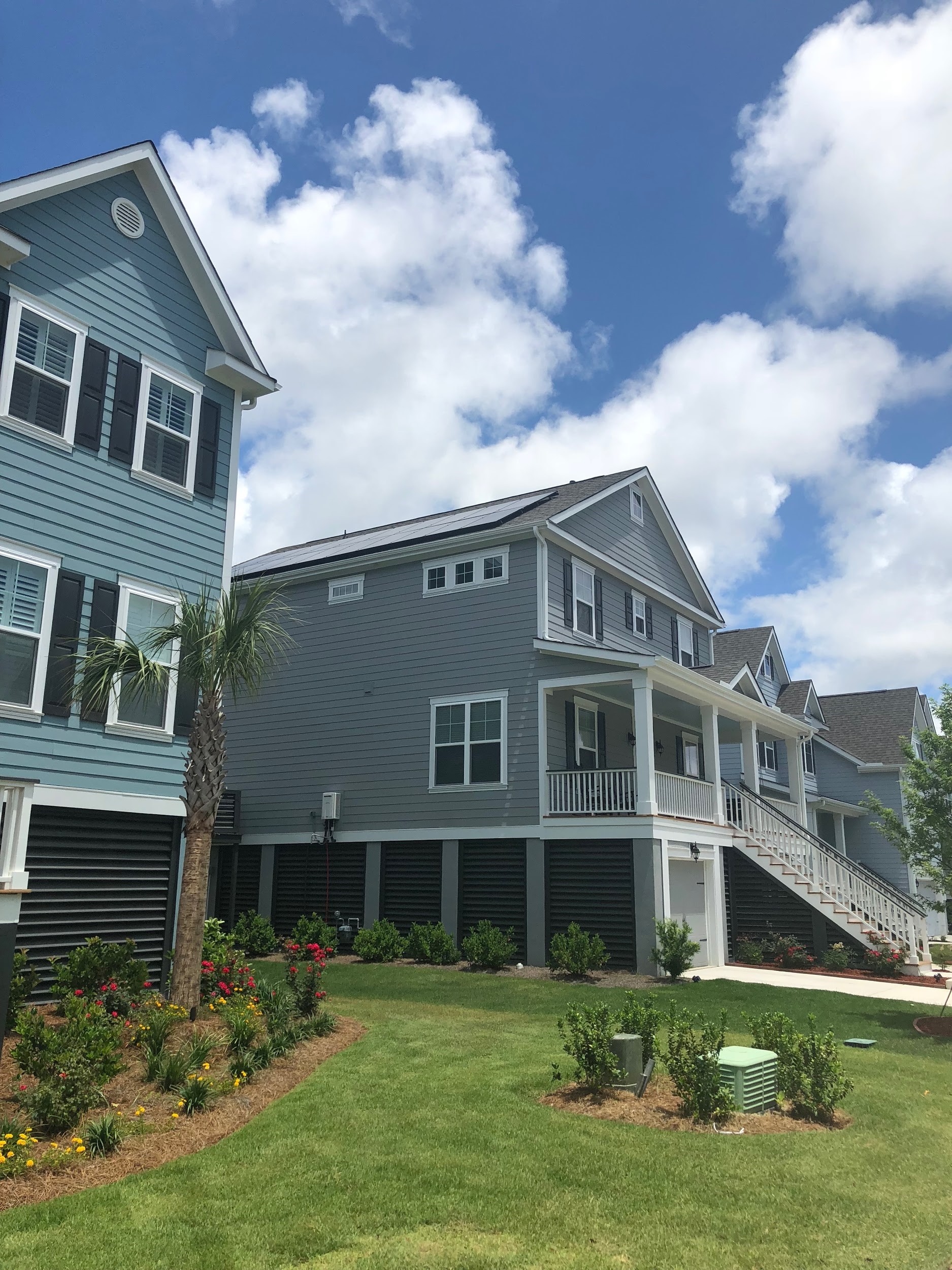Going Solar In Charleston: Q&A With Local James Island Solar Company Raywell Solar
Q&A with Raywell Solar.
Let’s be honest, there is no shortage of sponsored information about solar all over the internet and plenty of salesmen knocking on our doors to tell us all about how solar can benefit us. It is difficult for the average Charleston homeowner to separate facts from the sales pitches. On many of the local Charleston community forums it is evident that there is much confusion and disbelief regarding the benefits of installing solar in Charleston. Often there are questions from those interested in solar surveying other homeowners if solar actually penciled out to be a net payoff. We are delighted to speak with local Charleston business owner, and founder of Raywell Solar, Kasey Harwell to give us the cold hard facts.
Agent #ALLCHS: Kasey, thank you for your time today. Please provide an intro on yourself and the ethos of Raywell Solar.
Kasey from Raywell Solar: Two years ago, I started hosting solar workshops for communities in the Charleston area. We invited people to have their questions answered by an unbiased, industry-insider to educate homeowners. What came from these free workshops was an overwhelming need for a straightforward local installer who does a quality job. At the end of the session, the number one question was “who do you recommend to install?” The sessions were meant to help homeowners ask the right questions to their installers, so we did not give recommendations. But what we found out was that the community had a hard time finding a local, reasonably priced installation company. So that’s why we started RayWell. We emphasize quality over quantity and value over artificially inflated prices. We’ve been able to run a small business with that in mind ever since.
Agent #ALLCHS: In your honest opinion, is solar a luxury amenity for the environmentally conscious homeowner or is it a functional cost saving benefit?
Kasey from Raywell Solar: There are multiple reasons a person would go solar. The primary is often to gain a financial advantage over the utility’s prices. While you have no control over what SCE&G charges you (or what they do with their money...the nuclear plant fiasco as a prime example), you can control your energy costs with solar. Historically, solar used to be for the environmentally conscious person with enough cash to pay for their panels; however, the industry has evolved into a much more accessible product for homeowners with the clever invention of the “no money out of pocket” model. Instead of a cash purchase, a homeowner can pay for their solar monthly FOR LESS than they would buy it from their utility. So there are savings from day one and it grows with time. What we are seeing now is a real cost-saving option for property owners. Is solar a luxury? Absolutely not: we all use electricity and solar is a less expensive option.
Agent #ALLCHS: What is the cost of the average solar array installed? What percentage of a homes total energy use does the average array offset?
Kasey from Raywell Solar: These are tough questions to answer because we all use energy differently. We have different number of people in the home, different square footage and different access to the sun. There are many homes in Charleston where there isn’t sufficient sunlight or roof space, so solar isn’t a realistic option or only a small percentage of offset is achievable. It is really easy for a solar company to evaluate your property and they will do it for free, so take advantage of it and ask them to generate a quote for you.
Agent #ALLCHS: It is often stated that there are many subsidies available depending on location for installing solar. What benefits are available to the average homeowner in Charleston, South Carolina. Are any of these benefits expected to expire soon?
Kasey from Raywell Solar: Generating power is an expensive thing to do, solar included. Over the last ten years, solar panels have decreased in price so much that it beats the utility’s prices for power. This is in part because of the federal tax credit, which is equal to 30% of the cost of the system. This comes back to the owner via a dollar-for-dollar tax credit in the year that the system is placed into service. In South Carolina, we are blessed to have another 25% covered by a state tax credit. Again, it directly reduces what you owe to the government for the year. If you withhold your taxes on each paycheck, for example, the tax credit typically turns into refund check; but you can never get more credits than what your total tax bill was for the year. The credit rolls over to the next year if you cannot take it all initially. Right now, we also have a great policy with the large utilities (SCEG/Dominion, Duke) that allows for a 1-to-1 net metering program, which won’t always be the case in the future. There are various other incentives depending on your exact location and utility, which you installer will know about.
Agent #ALLCHS: If I pay cash for my install, factoring all benefits available today, At what year do I see breakeven return on investment? In what form is the benefit received? Is it a check from the power company because the homeowner is selling electricity back to them or is there simply net less electricity ran through the meter and therefore the billable usage is less?
Kasey from Raywell Solar: The latter. The value in solar is measured in the difference in cost of solar versus the power company. A home with solar no longer has to pay the higher rates of electric company and the savings is added up over time. If one pays cash, the simple payback is 7 years in SCEG territory. Anything after 7 years is “free power” and products are warrantied for at last 25 years. Residential solar installations are not meant to earn revenue off its energy, but instead it is a direct comparison with the utility. We all use electricity, you might as well pay less for it.
Agent #ALLCHS: What financing options are available? It is often advertised $0 down payment options. Is there ever a return on investment in this scenario?
Kasey from Raywell Solar: Seven years ago, the solar lease was invented for homeowners to pay nothing out of pocket and pay less to rent the solar equipment than they would pay with their utility. Three years ago, the industry shifted to ownership programs with no money out of pocket. This is in the form of a solar loan. It is typically unsecured (you can’t lose your house if you don’t pay), it has a low interest rate and long terms (up to 25 years). This invention made solar accessible to all of us who don’t have the cash for a system. As mentioned above, if solar can get you the power you need and you can pay for it monthly for less than your utility, why would you not?
Agent #ALLCHS: I have read that leasing is an option vs. a purchase or financing situation. Does Raywell Solar offer leasing options? In your opinion does leasing make sense in Charleston, South Carolina?
Kasey from Raywell Solar: The debate between solar ownership and leasing is like the debate for owning or leasing a car. Both can be a better choice based on your particular situation and outlook. The advantages of the lease are that the leasing company pays for any system maintenance and the tax credits are taken by the leasing company and passed through to the lessee. Ownership typically results in a lower overall cost and the homeowner gets the tax credits directly, but warranties might not cover all possible maintenance. What we see is that most people want to own their system, but leasing is definitely a viable option.
Agent #ALLCHS: The install involves workers fastening an array to a homeowners roof. The number one cause of leaks in homes start at the roof. What does Raywell solar do to ensure this is not an issue during and after an install. Does Raywell solar require a brand new roof to be installed prior to Solar Installation? If not, how old can my roof be on average before Raywell Solar would recommend a new roof prior to install?
Kasey from Raywell Solar: This is the number one question I get, and it is, of course, incredibly important. The quick answer is that each roof already has holes in it in the form of vents, chimneys and other obstructions. Each time this incongruity is introduced, you have to use the right flashing and equipment to keep the water out. For us, it is in the form of IronRidge attachments which make it virtually impossible for water to get in. For a quick video check out: https://youtu.be/ohCCYqT1vgg. Leaks are rarer than you think because of the technology.
Since solar lasts for 30 years or more, it’s important that the roof does not need a replacement soon, otherwise you need to remove all the panels, replace the roof and re-install solar. This costs extra money, so we recommend getting a new roof and solar at the same time if your roof is older. If you do this, however, you might be able to take the tax credits off the entire purchase. Ask your installer about this option.
Agent #ALLCHS: As you know, Charleston South Carolina is no stranger to Hurricanes, tropical storms, and high winds. What is the risk of a solar array being blown away or damaged during a Hurricane, tropical storm, or high wind scenario?
Kasey from Raywell Solar: The risk is the same for your roof being damaged by a hurricane. While no one can predict exactly how bad the winds will be, we do have building codes that require us to design for high winds. Many places in Charleston and Mount Pleasant have 130 MPH wind zone, meaning homes need to be built to withstand those forces. Solar is no different. Each design is stamped by a structural engineer to withstand the potential winds in your area. If your homeowners insurance covers your home/roof for damage, they should cover your solar equipment as well. Let your insurance company know you have added solar.
Agent #ALLCHS: What is the general life of a typical Solar array installed today? When will I have to replace my new array?
Take a look at the warranties of the equipment you are quoted. Industry standard is 10-15 years and better manufacturers will offer 25-30 years. You can expect the panels to make energy for a long time, since there are no moving parts and they are built to sit in the sun.
Agent #ALLCHS: What new solar technologies are coming down the line? Improved panels? Cheaper Panels? Backup batteries?
Kasey from Raywell Solar: Equipment is always improving. We get better efficiency all the time, but as each new improvement comes, it costs a little bit more. The best value in solar is getting “last year’s model”. More efficient modules means you get one less panel on your roof, but they cost a little more. Last year’s iPhone could be a lot different from the newest, but in solar, all you get is slightly better efficiency, which can result in one or two less panels. My advice is to take advantage of current incentives so that the net cost is lower than it will be in a few years.
While there is development in new technologies, they don’t result in a better value. If your goal is to reduce the cost of energy, take action while the incentives are active. Things like solar shingles, the solar flower, and super efficient cells may be the future, but currently they do not have the ability to reduce the cost of energy.
Agent #ALLCHS: Describe the sales to installation and follow up process Raywell solar provides. How is the full process from initial appointment to completion of project and generating electricity?
Kasey from Raywell Solar: An initial appointment can be set with a request from our site (www.raywellsolar.com) or calling (843) 203-0320. They last about an hour and give you the chance to grill us about every detail. When you decide to move forward, you are looking at a 4-8 week process to get panels installed. There is design, engineering and paperwork to be done for the utility and county permit office. RIght now, SCEG has about a 3 week waiting period for approval. A good installer should keep you informed at each step and after install, walk you through the online monitoring and billing process. At 3, 6 and 12 months, you should also do a review to verify expectations were met and the system is producing what was promised.
Agent #ALLCHS: Any additional comments you feel the consumer needs to know or that you find is frequently asked?
Kasey from Raywell Solar: There has been lots of discussion recently about the availability of the net metering program for the investor-owned utilities. Right now, Duke has hit their cap and SCEG’s is nearing this year. After the cap is reached, net metering will expire and solar will not be an option. If you get your application in Feb/March, you have a good chance of getting grandfathered in. If not, we will have to wait for new legislation that mandates the big utilities to allow net metering.
Agent #ALLCHS: Thank you for your time today! How can Charleston homeowners contact Raywell Solar to inquire about getting solar panels installed on their home or business?
Kasey from Raywell Solar:
Email: info@raywellsolar.com
Call/text: (843) 203-0320
Website: https://raywellsolar.com/



Looking to Buy or Sell a property with Solar Panels? Contact Agent #ALLCHS to help you navigate the cost/benefit ratio and ensure you get the best deal on your home!

